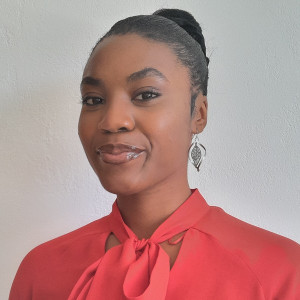Van uitstel kom afstel. ∼ From procrastination comes cancellation.
Afrikaans proverb
Hallo. Hoe gaan dit?
With the multitude of languages spoken in SA, it’s great when you’re in a new neighbourhood surrounded by people who speak a different language and you can recognise a word or two. Knowing exactly what is being said is totally another matter!
For you to be able to do that, you must expand your vocabulary and your use of the language. However, the development of language skills takes place over an extended period of time. Think of the development of your skills in your mother tongue. It took place from the time you were born and continued on a daily basis as you used it and had your little imperfections tweaked and straightened out by benevolent family members and teachers.
When English speakers learn a language like Afrikaans, innovative language learning is surely the best way to go about learning the language.
Here are several pointers to help you memorise as many Afrikaans words as possible and to start learning Afrikaans in a fun and interesting way. To be able to make Afrikaans conversation your forte, you will need to start with these pointers first.

Use a Dictionary
Because there will be many Afrikaans words that you don’t know, you'll need to use a good dictionary.
A Bilingual Dictionary
A bilingual dictionary will translate words from one language to another.
An Explanatory Dictionary
A monolingual or an explanatory dictionary defines words.
You can decide whether you prefer a bilingual, Afrikaans-English dictionary or an explanatory dictionary.
We recommend that you jot down the context within which you encounter new words, so that you can figure out which explanation suits your purpose, because the word may have been used as a noun, adjective, verb or even as a conjunction.

Afrikaans proverbs and idioms are very self-explanatory and fun. Just take a look at these examples:
- ‘n Hond uit ‘n bos gesels means to have a great conversation. This is also applied to someone who is garrulous.
- Twee rye spore loop (literally means walking two separate tracks or paths; used when watching a drunk person walk.
As said earlier, they are very descriptive!
In the technological age which we find ourselves in, you can also use online dictionaries and Google Translate to help you make sense of any new words or phrases you’ve heard. It is, however, important to check the veracity of the information by consulting more than one website or making use of an academic one, such as a site that is linked to an institute of higher learning.
It would also be helpful to:
- Read Afrikaans books and magazines
- Watch Afrikaans films
- Work on getting your pronunciation right
- Practise speaking Afrikaans
- Evaluate your progress
Jaco Jakobs is a South African Afrikaans writer who makes learning Afrikaans vocabulary through reading all the more fun and well worth it. Some of his book titles include:
| Book Title | English Translation |
|---|---|
| Die Meisie Met Vlerke | The Girl with Wings |
| Stink Sokkies | Smelly Socks |
| Vis en Tjips | Fish and Chips |
| Net Aliens Eet Spinasie | Only Aliens Eat Spinach |
| 'n Goeie Dag vir Boomklim | A Good Day for Climbing Trees |
Learning Afrikaans common words regularly will further reinforce
Learn All the Various Facets of Afrikaans
Do you want to learn to speak Afrikaans quickly? A sure-fire way is to engage with a native speaker, who will guide you through pronunciation, appropriate vocabulary, sentence structure and the use of idioms. Your understanding and use of the language will progress in leaps and bounds if you can engage with such a resource every day. Through this daily engagement you will also grow your vocabulary, which will enrich the way you use the language, as long as your use the words in the correct context.
Grammar (Language Study)
To speak or write Afrikaans correctly, learn the grammar.
One of the features of Afrikaans that makes it an easy language to learn is that it only has three tenses – the present (teenwoordige tyd), the past tense (verlede tyd) and the future tense (toekomende tyd).
Afrikaans has an SVO (subject-verb-object) sentence structure, which makes it reasonably simple to construct sentences, specifically in the present tense.
In the future and past tenses, the verb (past participle, created by the addition of ge- to the infinitive) moves to the very end of the sentence as shown in the table below. In the latter tenses, the auxiliary verbs het and sal are added to the verb, denoting the tense, past- and future, respectively.
| Present Tense | Past Tense | Future Tense |
|---|---|---|
| Die hond eet 'n been. | Die hond het 'n been geëet. | Die hond sal 'n been eet. |
In the above examples, the word hond (think hound) shows that English and Afrikaans are more closely related than most people imagine.
So, don’t be surprised if you recognise a good many English words in pieces of literature which you may come across. There are even full sentences and even poems which can be read in either Afrikaans or English. They even have the same general meaning.

Infinitives
Infinitives are, generally, formed by adding om te as in Ek hou daarvan om te draf (I like to run). A few verbs such as skyn (seem; appear), hoef (need) and behoort (ought) are simply followed by the infinitive te.
- Jy hoef nie te kom nie. - You do not have to come.
- Sy behoort daar te wees. – She should be there.
Negation
This is a very interesting feature of Afrikaans. It works exactly in the opposite way that the double negative does in English.
Whereas in English, the second negative cancels out the first, in Afrikaans, the double negative (die dubbele ontkennend) is the standard way to express negation.
‘I did not eat your sandwich’ would be expressed as: Ek het nie jou toebroodjie geëet nie.
However, when no object is present, only a single nie is required: Hy weet nie (He doesn’t know). If it were followed by an object the sentence would read: Hy weet nie wie dit is nie (He doesn’t know who it is).
STOMPI rules matter, especially when understanding how sentences are constructed.
STOMPI stands for Subject, Tense, Object, Manner, Place and Infinitive.
Try New Afrikaans Vocabulary and Sayings
An important challenge to overcome, is to hear yourself speaking a language which is foreign to you. It is not always good to record yourself, because most people believe that their recorded voices sound pretty weird. So, perhaps a better idea would be to work with a trusted, knowledgeable native speaker who can correct your initial forays into Afrikaans speech and help set you on a course to successful use of the language on a daily basis.
Often-repeated phrases and expressions, Afrikaans proverbs or idioms, will likely catch your ear, pretty early on. Afrikaans is rich with idioms and proverbs, which native speakers deliver with relish. The more you use the language, the more you will understand the expressions which people use to describe other people or situations.
You will soon discover that Afrikaans is a language which is very direct, in the sense that the words and expressions immediately conjure up images of what is meant by a particular utterance. Take, for example, the following idiom: Die bobbejaan agter die bult gaan haal . You can literally see that someone is going out of their way to find trouble (a problem). Another very descriptive example, is when someone is described as loskop. It means ‘loose head’ in literal terms and describes someone whose behaviour is odd or forgetful. When someone doesn’t listen or pay attention, it is said: Dis by die een oor in en by die ander oor uit.
Hearing and using these expressions will help boost your vocabulary, as you will learning the individual words that make up each expression. By consulting your (Afrikaans-English dictionary) tweetalige woordeboek, you will discover, for instance, that bobbejaan means baboon.
The Internet is also a great resource nowadays, as you will find various sites which can assist you to translate from English to Afrikaans and vice versa. These, of course, will obviate the many errors that are committed when one attempts to translate directly as the word order does not necessarily remain the same. As jy sukkel, Google dit!
Search for Afrikaans tutorials here on Superprof.

Use Technology to Help You
As stated above, there are plentiful resources available online. You can even learn as you’re travelling to or from work, college or varsity. There is a wonderful array of activities that you can engage in on the Internet. Plug into a website and listen to an Afrikaans podcast or the Afrikaans news on your phone.
Alternately, complete an Afrikaans crossword puzzle (blokkiesraaisel), using your phone to check for answers online. Or, initiate a brief search which will reveal Afrikaans games, language and vocabulary quizzes, common phrases quizzes and even world trivia. In the mix, you will also come across quizzes for beginners or just fun one. The options are endless.
Your phone and Google are a great resource as you can simply either type in a sentence or speak it into your phone and have Google translate it for you. Amazing, don’t you think? Track your progress in the language by using an Afrikaans language learning app as well.
Search for Afrikaans lessons for beginners here on Superprof.
Rest and Sleep
The benefits of sleep and its impact on learning are often not fully appreciated. When the body comes to a state of rest, the mind has the opportunity to “file” away items of information in specific places, from where there can be retrieved when required. Once the busyness of the day has been set aside, the brain is free to create pathways along which the new information can be readily accessed. So, all in all, it is vitally important that you get sufficient rest, relaxation and sleep to to benefit from your studying of Afrikaans.
Taking it easy, on a Sunday, for example, allows you to watch some TV.
Why not take in a few episodes of an Afrikaans series, like Suidooster, which is available on Showmax, DStv Stream and Catch Up. A relaxing way to spend a Sunday afternoon … and learning, nogal!
Search for Afrikaans lessons here on Superprof.
Create an Afrikaans-Speaking Environment
A great way to expand and consolidate your vocabulary would be to make sticky notes and pin them up around the house. Print the words onto the notes and pin them onto walls, doors, next to or on your mirror and fridge. If you can, paste a picture of a baboon, object or person next to or below the note.
Search for grade 1 Afrikaans lessons here on Superprof.
Since the eye takes in information visually for the brain to process, this will be a wonderful way to enhance your learning of Afrikaans and to build vocabulary. It will ensure you learn Afrikaans words daily and help you to commit them to memory.
You can even add labels onto items of furniture or parts of the house, like deur (door), venster (window), rusbank (couch), foto (photo), skildery (painting), tafel (table) and stoel (chair). Now, it becomes important for you to incorporate these words in your everyday speech to expand your knowledge of Afrikaans exponentially!
Speak Afrikaans

Practise using Afrikaans whenever you can – on friends, your tutor and colleagues. This practice will bring your learning to life, because a language must be spoken to be learned. When you are alone, try saying new words or expressions aloud to hear if you are perfecting them. Check your pronunciation against language apps on your phone or online.
If you don’t mind the sound of your own voice, why not record yourself speaking on your cellphone?
Talk to Afrikaans Native Speakers
Want to accelerate your learning of Afrikaans?
Then, you’ve got to do this. Your accent, pronunciation and idiomatic use of the language will simply take off! On top of all of that, you will also be immersed in the culture surrounding the language and you will, possibly, grow a new circle of interesting friends. At the next braai, you could be the guest of honour and, maybe, you’ll be asked to propose a toast in Afrikaans! Now, wouldn’t that be exciting ... and a reason to brush up on your idioms and pronunciation!
Remain Motivated
Know that learning a new language is not going to happen overnight. Rome wasn’t built in a day!
It is going to take time, dedication and hard work from you to become reach a level of being conversationally comfortable. First prize would be if you could discipline yourself to learn several Afrikaans words and/or phrases every day, so that you’ll never reach a point where you feel that you have to sit for several hours on a particular day, because you haven’t been working at it daily. This is a point at which a “study-buddy” would help you: someone to converse with in Afrikaans, daily, preferably an Afrikaans first language speaker.
Search for Afrikaans lessons online here on Superprof.
Acquiring Afrikaans Vocabulary

A great way to extend your vocabulary, would be to learn the Afrikaans words for the items on your grocery list and some on the shelves, which aren’t on your list. This is a fun and easy, non-threatening activity. You’ll walk out feelling chuffed at knowing where to find the waspoeier, koffie, suiker, appelsap and aartappels.
Once you’ve jotted these down, use your phone to listen to how they are pronounced. Create a sentence with each incorporating adjectives (byvoeglike naamwoorde) and adverbs (bywoorde).
As your Afrikaans vocabulary grows, so too will your confidence and your ability to hold conversations with Afrikaans native speakers. Once they see how committed you are to learning the language, the more they will step forward to assist and to work with you!
Your brain has got to get used to hearing you speaking, listening and reading Afrikaans.
There is no time like the present! Jump right in and launch yourself on an exciting journey of learning and growth ! Guaranteed: Jy sal nooit terugkyk nie!
Never, Ever, Give Up!
The little engine that could, in the kiddies’ recitation, said, “I think I can ... I will get there ... I simply must not stop!”
That is key in any endeavour: don’t give up when the going gets tough. It has been proven to be true, in so many arenas, that many people give up just as a breakthrough is about to happen. Remember: It is darkest just before the dawn!
This Afrikaans idiom is also very apt:
Aanhouer wen!
Afrikaans idiom
Keep in mind whatever your goal was when you started on your journey to learn this new language, Afrikaans. That will help to keep you focused and determined to achieve your goal.
If the end still seems a long way off, break up your tasks into small achievable chunks. For instance, plan to learn four new Afrikaans words every day. Within three months, you will have added 2 520 words to your woordeskat (loosely translated into treasure trove of words). And, amazingly, you require only around 1 000 words to conduct a decent conversation in a foreign language, which by then should not be foreign anymore!
Be brave! There have been many Afrikaans speaking individuals who have migrated to a big city, like Cape Town, not speaking a word of English. Many of them have ended up as fluent English speakers because they never gave up ... no matter how badly the initial attempts at using the language went.
And if you get stuck, give Superprof a try!
Many of our Afrikaans tutors are first-language speakers with a great passion for the Afrikaans language. Some of their enthusiasm will, no doubt, be passed on to you.
Better yet, lessons can be organised around your schedule, and can be held online or at a convenient location for you and the tutor.
Now that’s something worth surfing for!
Summarise with AI:
















Everyone loves your translation blog, and I myself think it’s quite helpful.
We’re really pleased that you find our content useful.